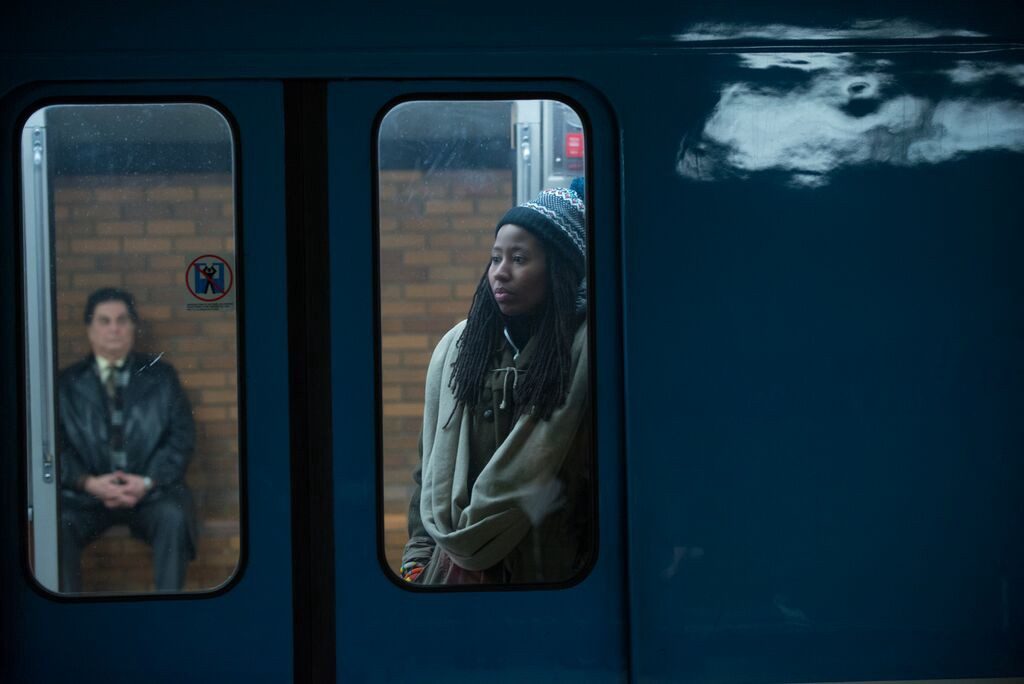Born in Hong Kong and raised in Canada, Mina Shum is an independent filmmaker and artist. “Ninth Floor” is her first feature documentary. Her first feature, “Double Happiness” (1994), premiered at the Toronto International Film Festival, where it won a Special Jury Citation for Best Canadian Feature Film and the Toronto Metro Media Prize. It went on to win Best First Feature at the Berlin Film Festival and the Audience Award at the Torino Film Festival. Shum’s second and third features, “Drive, She Said” (1997) and “Long Life, Happiness and Prosperity” (2002), also premiered at the Toronto Film Festival. Shum’s short films include “Shortchanged,” “Love In,” “Hunger,” “Thirsty,” “Me, Mom and Mona,” “Picture Perfect” and “I Saw You.”
“Ninth Floor” will premiere at the 2015 Toronto International Film Festival on September 12.
W&H: Please give us your description of the film playing.
MS: “Ninth Floor” is my first feature documentary. In 1969 Montreal, six black students charge a white professor with racism, and it erupts into the biggest student protest of the day. The protest escalates into a fire, trapping the students on the ninth floor and onlookers below screaming racial abuse. “Ninth Floor” is about the ultimate betrayal and heartache of being unwanted and unwelcome in the land you call home.
W&H: What drew you to this story?
MS: In the early stages of research, I came across the words “charges of racism” in one of the original documents. It was shocking to see it stated — all raw like that — and it made me think of how I deal with racism in my own life. Then I learned that our subjects had all been under surveillance: They were being watched. I was hooked. “Ninth Floor” presented me with an amazing opportunity to reflect upon power and exclusion, and to explore how we see each other.
W&H: What was the biggest challenge in making the film?
MS: I found being interviewer and writer, as well as director, to be challenging! I’d never done that before. Since most of my work is fiction, I’m used to directing actors off a script — usually a script that I wrote. Here, I was probing a story that’s not mine, yet I had a very clear idea of what kind of movie I wanted to make. The writing-directing job was hard enough and needed my full attention, but then I was the interviewer too.
The interviewer is the only other person in the scene with the subject. The story and film took a lot of prep to get right, and then, because I’m in the scene with the participants, I had to let go of the prep to be present for the revelations that the participants brought. These are things I do as a director in fiction, but in this documentary there were no actors to direct — it was just me, directing myself and the participant towards the film. I had to be so present with my energy and ears. Ready to pick up on an emotion or a new strand. That was both exhilarating and exhausting.
W&H: What do you want people to think about when they are leaving the theater?
MS: I want us to vow to be better humans. That we are all in this, and that even though we are fallible, we are also equally resilient. “None but ourselves will free our minds,” to quote Bob Marley’s “Redemption Song,” which plays a thematic role in the film. I want us to think about why we judge.
W&H: What advice do you have for other female directors?
MS: Get a good, big, solid line of credit and keep making work.
W&H: What’s the biggest misconception about you and your work?
MS: I have directed all kinds of film — drama, comedy, thriller of all lengths — and yet I’m often thought of as someone who only directs her own work. “Ninth Floor” proves that I can take someone else’s story and put my compassionate, cinematic edge to it.
W&H: How did you get your film funded? Share some insights into how you got the film made.
MS: This film was funded by the National Film Board of Canada, a government organization dedicated to documentary and animation. Selwyn Jacob, the film’s producer, works for them. He pitched me the story of the events, and after a year of active development, we got the green light.
W&H: Name your favorite woman-directed film.
MS: Susanne Bier’s “After the Wedding” or “Big,” directed by Penny Marshall.







